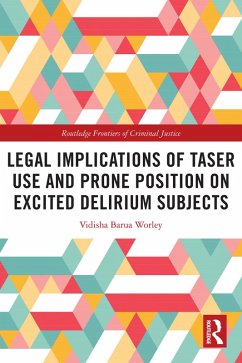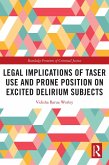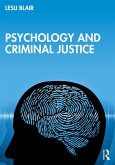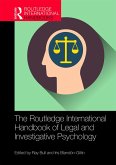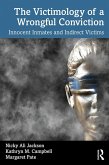This study alerts society to the urgent need to treat excited delirium as a medical emergency, rather than a crime scene where a multi-agency collaborative effort can de-escalate and manage these hyperthermic and paranoid individuals allowing them an opportunity to live. It also argues that the reaction of some U.S. states, that are prohibiting the term "excited delirium" and preventing officers from getting adequately trained, can have devastating results by increasing municipal liability for failure to train. It also fails those individuals undergoing serious mental health crises by way of excited delirium or seizures, who need to be served and protected as per the social contract theory.
Legal Implications of Taser Use and Prone Position on Excited Delirium Subjects will be of interest to legislators, attorneys, judges, police agencies, correctional facilities, and graduate-level students in criminal justice, law, and the social sciences.
Dieser Download kann aus rechtlichen Gründen nur mit Rechnungsadresse in A, B, BG, CY, CZ, D, DK, EW, E, FIN, F, GR, HR, H, IRL, I, LT, L, LR, M, NL, PL, P, R, S, SLO, SK ausgeliefert werden.

